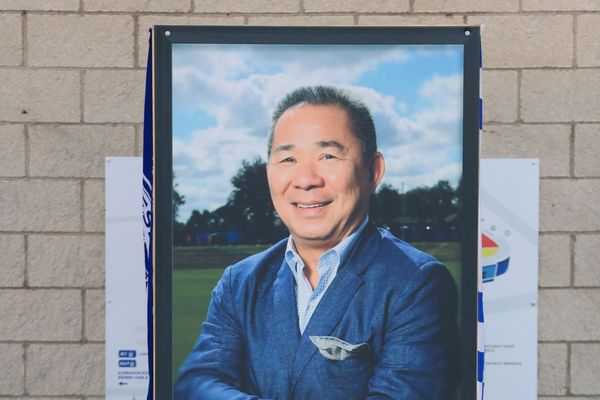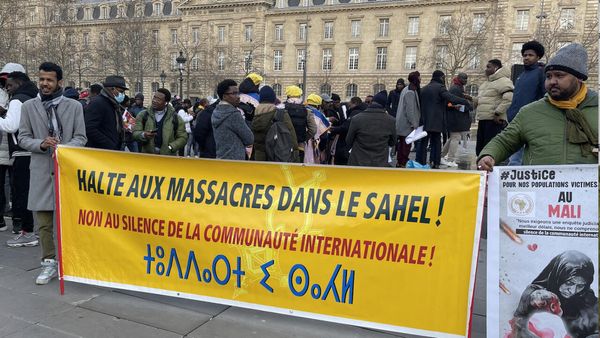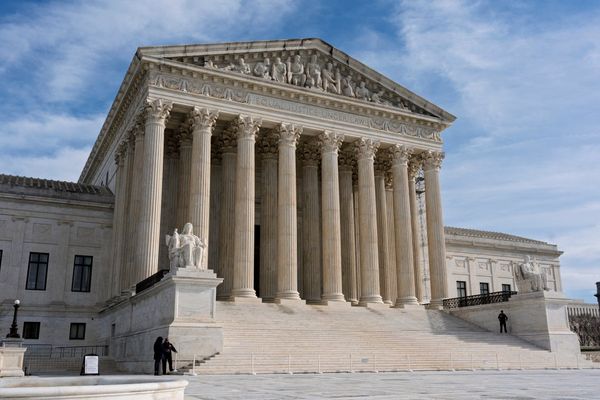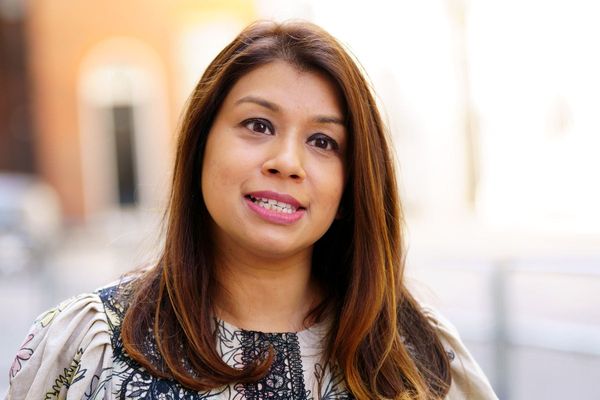CHICAGO — On Tuesday, Charles Freeman told a wild tale to jurors about how R. Kelly and his associates allegedly agreed to pay him up to a million dollars in the early 2000s to hunt down videotapes of the R&B singer sexually assaulting a young teen girl.
But that account came under withering scrutiny within minutes of cross-examination beginning Wednesday, with an attorney for Kelly’s co-defendant Derrel McDavid painting Freeman as a liar and opportunist who has given varying contradicting accounts about the conspiracy over the years.
“People who lie, people who cheat, people who take advantage of others for money, those are people whose word is hard to trust, agreed?” Brindley asked pointedly at the outset of his questioning, his hands folded somberly in front of him.
Freeman said, “Agreed.”
Brindley spent nearly three hours questioning Freeman about the motivations behind his purported search for R. Kelly tapes, suggesting at one point that it was Freeman himself who had “tried to shake down or extort Mr. Kelly for money.”
“What happened between you and Derrel McDavid was, after you tried to get this money from Mr. Kelly, McDavid told you very explicitly that if it was up to him, you wouldn’t get a dime?” Brindley asked. Freeman said that was false.
The jurors appear to be paying close attention. Often, when asking his most pointed questions, Brindley has looked out at jurors seated in the courtroom gallery — not at Freeman.
Freeman has recounted his version of the two-decades-old events several times in recent years, including at least three under oath: Before a Cook County grand jury, in an affidavit for a federal grand jury, and now at Kelly’s trial.
All those accounts differ from each other, some in significant ways, and Brindley pressed him on the discrepancies with increasing agitation. The wide-ranging inconsistencies included where Freeman first learned the whereabouts of the tape, how many tapes he took, when he learned what was on the tape, and who was involved in the initial conversations about retrieving it.
Brindley grew louder and more animated as the questioning continued — pointing his finger in the air, placing his hands on his hips. But across the room on the witness stand, Freeman kept a smile on his face. Occasionally he would chuckle, lean back, and take a sip of iced tea.
In another pointed round of questions, Brindley asked Freeman whether it was true that McDavid called Freeman “a thief and a liar and said and if it was up to him you could go (expletive) yourself.”
“No, he has never said that to me,” Freeman replied.
Brindley also asked whether Freeman feels “bad at all for the things that you have done,” including copying and possessing alleged child pornography for years without telling police.
“I never tried to get money for doing something bad,” Freeman replied. “I was helping a friend.”
As cross-examination wore on, many of the previously alert jurors seemed to lose attention, some of them staring off into space.
Toward the end of his questioning, Brindley asked if Freeman noticed a “pattern” — his prior statements don’t mention McDavid’s presence in certain meetings, but his trial testimony did, Brindley pointed out: “Now, Derrel McDavid pops up!”
And Brindley wrapped his questioning by mentioning Freeman’s immunity agreement, which protects him from everything but perjury.
“After what we have just gone through together, Mr. Freeman, I take it that you must be very nervous about your future prosecution, right?” he asked.
“No,” Freeman responded.
After about four hours of questioning from Brindley, Kelly’s attorney Jennifer Bonjean began cross-examining Freeman, attempting to paint him as a con artist, liar and schemer. It is implausible that Kelly would reach out to someone like Freeman to make such a huge request, she suggested.
“At this time Mr. Kelly was fairly successful, rich, had a lot of success in his career,” Bonjean noted. “(Out of) all the people in the world he could find to help him get these tapes is a thief who did merchandising for him? ... You were part of a shakedown scheme, right?” she asked.
Under questioning from Bonjean about significant differences between Freeman’s version of events at the Cook County grand jury and during this trial, Freeman again denied that he was inconsistent. These events were 20 years ago, so he’s been doing his best to piece it together, he said, and besides, the people who put together his signed statement to Cook County grand jurors “jumbled stuff up together.”
Freeman, who was colorful and loose on direct examination on Tuesday, is a key witness to the heart of the indictment alleging there was a conspiracy to cover up sexual misconduct by Kelly. Defense attorneys have described him in opening statements last week as a con man, extortionist and criminal.
Brindley also spent much of his time questioning Freeman about his February 2019 sworn statement to a Cook County grand jury, which said he’d “figured out who had taken the tape by calling some of Rob’s employees who heard that a man had a videotape and was showing it to people in Atlanta.”
Freeman told the jury in Kelly’s trial on Tuesday, however, that it was McDavid who’d given him the name of the person with the tape.
Brindley has been animated in his questioning, often interrupting Freeman as he tries to explain the discrepancies. At one point, Brindley stopped him and said, “You understand that what you’re saying doesn’t make any sense, sir?”
“Yes, it does,” Freeman said.
“It does to you,” Brindley shot back.
Brindley has also tried to pin Freeman down on when he realized there was pornography on the tapes — and who told him. Freeman testified Tuesday that he first knew of the contents when he popped the tape in a VCR shortly after recovering it in Atlanta and saw Kelly having sex with a young girl.
But in varying accounts he gave previously under oath, Freeman said that he’d been told before he even went to Atlanta that Kelly’s camp was trying to recover sex tapes.
That timeline could prove important. McDavid’s attorneys have argued that at the time, McDavid was under the impression that the allegations of sexual misconduct by Kelly with minors were untrue, and that the tapes circulating on the street had been doctored.
Earlier on, Brindley apparently caught Freeman smiling. “Is this funny?” he asked the witness. “Are you having a good time?”
Brindley then asked Freeman if he was bothered that he’s held onto alleged child pornography for 20 years. Freeman said he wasn’t.
“You’re not upset for what you’ve done?” Brindley shouted, which was followed by objections by prosecutors.
Even U.S. District Judge Harry Leinenweber, 85, who has been on the federal bench for nearly 40 years, quipped on Tuesday he was “looking forward” to the defense questioning.
Kelly, 55, is charged with 13 counts of production of child pornography, conspiracy to produce child pornography and conspiracy to obstruct justice.
Also on trial are McDavid and another associate, Milton “June” Brown, who, according to the indictment, schemed to buy back incriminating sex tapes that had been taken from Kelly’s collection and hide years of alleged sexual abuse of underage girls.
Freeman testified Tuesday that he was paid hundreds of thousands of dollars over the years in exchange for getting at least one of those incriminating tapes back.
The plot as described by Freeman spanned almost a decade, and unfolded in cities from Chicago to Kansas City and Atlanta, at Kelly’s music studio, concert venues and even the singer’s sprawling Olympia Fields mansion, where Freeman said he was told to strip naked and get in a pool to prove he wasn’t wearing a wire.
Freeman is testifying under an immunity agreement from prosecutors. In one of his more memorable statements on the witness stand Tuesday, Freeman said he did not tell the police about the child pornography he’d recovered “because the police wasn’t going to pay me a million dollars.”
____







